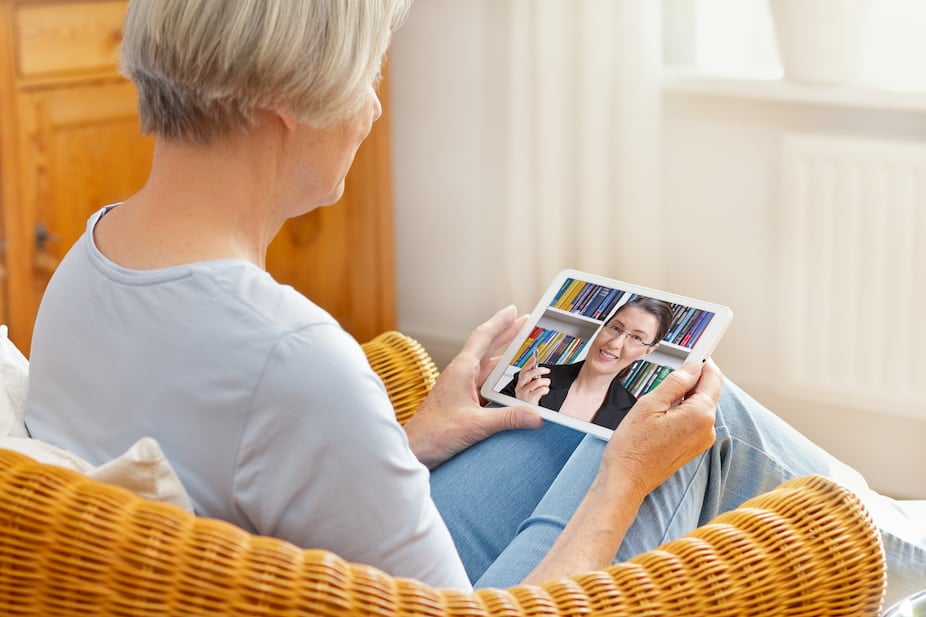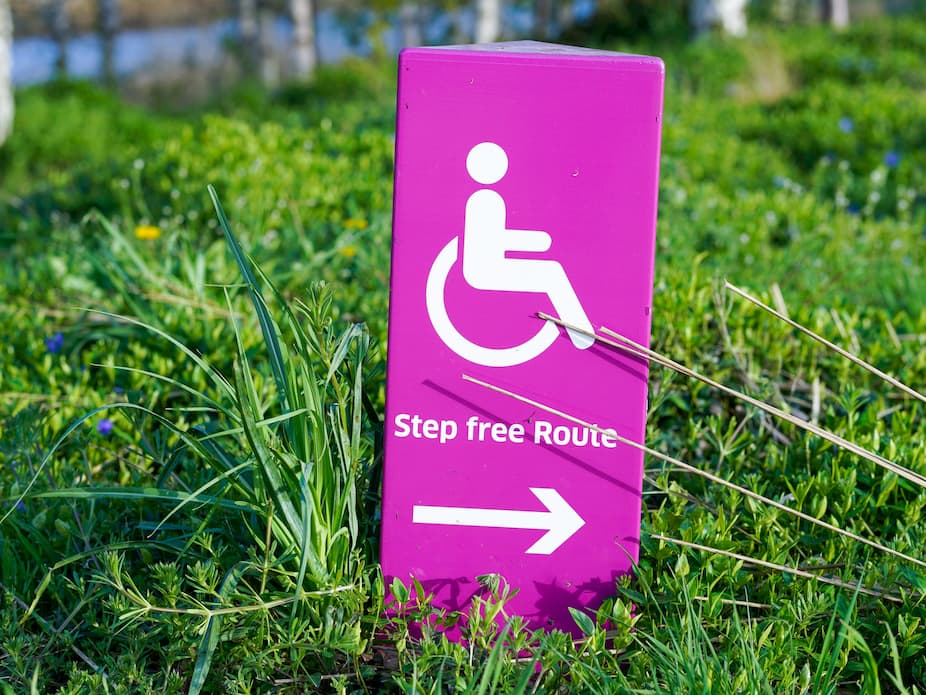
There is no doubt that Australia’s 2019/20 natural disasters and COVID-19's abrupt entry into our lives have led to increased levels of stress, anxiety and depression and worsened our country’s already alarming mental health figures.
Recently, a national survey published on the Medical Journal of Australia website***, surveying the mental health of Australians during the first month of COVID-19 restrictions between 3rd April – 2nd May this year, found “clinically-significant depressive and generalised anxiety symptoms, thoughts of being better off dead or of self-harm, and irritability were at least double those in non-COVID affected populations”.
However, the impacts of life-changing events like COVID-19 are just the tip of the iceberg highlighting Australia’s existing mental health crisis.
For instance, during the 2017-2018 period, the Australian Bureau of Statistics (ABS) reported:
- "one in five (20.1%) or 4.8 million Australians had a mental or behavioural condition"*
- "around one in eight (13.0% or 2.4 million) Australians aged 18 years and over experienced high or very high levels of psychological distress."**, and
- "three in five adults (60.8%) in Australia experienced a low level of psychological distress."**
Concerningly, these figures suggest that in 2017-2018 - well before COVID-19 – the majority of Australians were experiencing some level of psychological distress.
Barriers to seeking help

Distressingly, Australians face numerous barriers and stigmas preventing easy and timely access to psychological support when and where they want to reach out. For many, these factors act as deterrents, meaning many Australians may not reach out for mental health support when they need it – or at all.
Some of the barriers and stigma come from:
Limited access to face-to-face psychologists close by
Not only has COVID-19 limited our access to face-to-face psychologists, but many Australians living in rural or remote areas also find it difficult to find a suitable psychologist in their town or close by.
Waiting times to access psychology services
The high demand for psychology in our country means that Australians often have to wait weeks to speak to a psychologist. In addition, for time-poor Australians and those with a lack of flexibility within their work and/or family lives, the traditional ‘9am-5pm’ (or similar) hours offered by face-to-face psychologists may not be conducive to reaching out.
Cost of psychology sessions
There is a stigma about psychology being expensive and for anyone experiencing financial hardship, in particular, those who have been made financially vulnerable due to natural disasters, job loss or any other significant life change this can be a deterrent for seeking help.
What’s the solution?
We are in the midst of a mental health crisis and more accessible and flexible digital services to provide online therapy are a significant part of the solution to help support and improve our nation’s psychological health.
This includes those who consider themselves well (and want to maintain their psychological wellbeing), to those suffering from mild, moderate and severe mental health concerns.
Digital services (online therapy) are vital now more than ever due to enforced COVID-19 distancing and lockdown measures impact on limiting our access to social and personal support networks of friends and family who previously helped us adapt in challenging situations or in a crisis and changing our access to professional help and services.
Kate Blundell, Chief Psychologist of My Mirror says, “My Mirror was conceived and built by real Australians and healthcare professionals who recognise that the world is changing rapidly and we need to evolve with it. We have created a unique platform that make the process of connecting with a mental health professional easier than ever. Unlike many bricks and mortar services with extended wait times, our digital platform makes it possible to speak to a registered psychologist in real-time via video conferencing, when you need it most and from the comfort of your own home.”
What is online therapy?

Online therapy conducted via telehealth or video conferencing platforms, can be very similar to meeting with a psychologist face-to-face.
From your first therapy session to your last, a psychologist providing online treatment should follow the same process (including privacy policies, rules and guidelines) as they would if they were delivering your therapy face-to-face. You can download our eBook on the Benefits of Online Therapy to read more about this.
Online therapy is simply a newer medium that allows psychologists to provide mental health treatments and support from a distance, over the phone or via videoconferencing.
In a world saturated by easy-to-use technology and online services, it is no surprise that online therapy is quickly gaining traction.
This medium of therapy has been a necessity during the current COVID-19 pandemic, helping individuals overcome numerous barriers that may prevent them from seeking help during isolation, lockdown or enforced physical distancing requirements.
What the research tells us about the effectiveness of online therapy
Results from international research show that online therapy and face-to-face therapy have comparable levels of effectiveness in many cases.
One meta-analysis report, ‘About the effectiveness of telehealth procedures in psychological treatments’^^, published by the International Journal of Clinical and Health Psychology in 2012, revealed that Internet Computer-Based Treatment (ICT) was in some cases more effective than traditional methods for treating “mild to moderate” levels of depression.
This meta-analysis also revealed that online therapy is particularly effective when the client has contact with their therapist, "for example by phone, e-mail and/or video conference” as opposed to being self-directed working through material.
In addition, this report also found that online psychology programs were most effective at treating a range of psychological problems such as depression, anxiety and specific phobias.
A review published in the Journal of Clinical Psychology^ found issues and problems potentially best suited for online therapy include “personal growth and fulfillment; adult children of alcoholics; anxiety disorders, including agoraphobia and social phobias; and body image and shame/guilt issues”.
During this uncertain era, anxiety disorders are likely some of the most common mental health concerns facing Australians. As more of us find the need to talk to a psychologist, online therapy will be there to help complement existing face-to-face services by providing more, and flexible, services that Australia needs.
How similar is online therapy to face-to-face therapy?
Online therapy uses video conferencing, audio conferencing or your phone to connect you with your psychologist.
One significant advantage of online psychology is that you can meet with your psychologist in your own space at a time that is convenient for you. This means that those who face geographical, time-based or physical barriers, it is just as easy to access support when you need it.
Other than these two key differences, online psychology and more traditional methods share some important similarities:
- Registration – Your online psychologist, such as My Mirror psychologists, should also be a registered psychologist who works with evidence-based strategies to treat your concerns. Whether it be face-to-face or online, psychologists who provide evidence-based treatments like Cognitive Behavioural Therapy (CBT) and Acceptance and Commitment Therapy (ACT), are providing treatment proven to be efficacious.
- Ongoing assessment – Your psychologist will assess your situation and concerns in your first session and throughout your therapy journey.
- Collaboration – Your psychologist will work with you in a collaborative way for you to get what you want out of therapy. You can schedule follow-up sessions with the same psychologist and continue to work collaboratively together to assist you in working towards your goals.
- Skills and strategies building – Your psychologist will help you to learn and build skills and strategies to help you cope and increase your resilience.
- Privacy and security – All psychologists – offering services either face-to-face or online – are bound by the privacy policies, rules and guidelines of their relevant professional association as well as applicable Australian laws and legislation.
8 reasons why online therapy might be the answer to Australia’s mental health crisis
There are significant advantages to meeting with a registered psychologist online. These advantages are designed to overcome barriers that may prevent you or someone you care about, from seeking help.
When Australia can begin to stamp out these hurdles, we can connect more people with the psychological help they need to address their concerns and rebuild their emotional resilience and agency.
Here are just some of the reasons why online psychology services might be the answer to our nation’s mental health crisis.
1. Known spaces are comforting

Speaking with your therapist online from home, or a known and private space, can be comforting for many people experiencing distress.
In this familiar setting, you don't have to worry about feeling like a visitor in someone else's space or not having items that may comfort you if your therapy happens to be confronting.
For many, simply being in a known space provides more opportunity to truly relax, and this may promote a more productive session.
The more that Australians become familiar with this benefit of online psychology, the more we’re likely to see people reach out for support sooner, possibly using psychology to build resilience and reduce risk factors helping to prevent some mental health disorders.
2. No geographical barriers or travel time helps you manage competing demands
Online therapy is highly accessible.
It eliminates geographical barriers and the need for travel time, which can make a significant difference for a wide range of people. Those living in isolated areas where access to psychologists is limited and services are irregular, and individuals juggling various challenges or commitments in their daily lives will find online therapy much more convenient.
3. Online therapy offers flexibility

Online therapy may also suit you if you:
- Are time-poor juggling commitments at work, at home with your kids, or even caring for a family member.
- Have a physical condition that makes travel time consuming and/or difficult.
- Find it difficult to leave your home easily, as a new mother might or someone suffering from anxiety perhaps.
- Living in a rural, remote or even regional area, online therapy not only saves time but creates flexibility when choosing a time for your psychology appointments. It also provides access to a professional you might not otherwise have access to.
The previously mentioned survey***, published in the Medical Journal of Australia, concluded that in the first month of restrictions since COVID-19 began, “While there appears to be a whole of population increase in psychological symptoms, some groups are especially vulnerable. First, people living in the least resourced communities, including in rural areas, occupying the lowest socioeconomic positions, or who might have been unemployed prior the pandemic.”
Knowing this, online therapy can be used to reach more Australians and give them a long-awaited hand up with their mental health issues.
4. Therapy via an online platform can be more affordable
Therapists or services who exclusively offer online treatment – like My Mirror – are usually not paying for a physical therapy space and may, therefore, reduce the cost of their treatment.
This means that with online therapy financial barriers are less likely to act as a preventative to seeking help. In time, this too will help more Australians address their mental health issues, hopefully helping to tackle our nation’s mental health crisis.
5. Online therapy is also evidence-based
Psychologists who deliver sessions using video conferencing use evidence-based approaches just as they would when delivering face-to-face sessions.
This knowledge helps to maintain the credibility and effectiveness of online psychology sessions.
Two of the most common evidence-based treatments include:
- Cognitive Behavioural Therapy (CBT) – this takes a practical approach to solving problems, where negative and unhelpful thoughts and behaviours are identified and you work on adjusting these to be more helpful and realistic. This approach is widely used has been shown to be very effective for a range of mental health concerns.
- Acceptance and Commitment Therapy (ACT) – this type of therapy teaches mindfulness (nonjudgmentally paying attention to the present moment) and acceptance skills to respond to situations and experiences we can't control. It also focuses on helping you to identify your what is important to you to help you to take action in leading a life that is meaningful and fulfilling.
Other common evidence-based treatments may include solutions focused brief therapy, narrative therapy, mindfulness-based cognitive therapy, interpersonal therapy and emotion-focused therapy, schema therapy and dialectical behavioural therapy (link to e-book on this for more information).
6. Online therapy may be less daunting

Taking the first step to reach out to a psychologist can be less daunting when you’re receiving treatment from the comfort of your own home.
This helps prevent the potential worry about seeing someone you know in the waiting room of your therapist's office, or even running into someone on your way home when you may feel vulnerable or less likely to want to chit chat
Unhelpful stigma about seeking mental health help has long been a barrier for Australians. Now, with the privacy of online therapy, Australians can finally get help when and where they want it.
The report published by the Journal of Clinical Psychology^ stated “...potential consumers who feel stigmatized by the counseling process may be more likely to seek help online if they feel the initial shame is diminished when they are not in the therapist’s physical presence (Mitchell & Murphy, 1998)”.
7. Providing quicker and easier access to client education
Educating clients about their mental health concerns is one way to improve and prolong the benefits of therapy.
Psychologists delivering therapy sessions via the internet can use the internet quickly and easily to feed any applicable additional material to their clients during their sessions.
This prompt access to helpful information is potentially another factor that suggests online therapy could help Australia tackle its mental health crisis.
The report published by the Journal of Clinical Psychology^ stated “Another advantage of online therapy is the ability to use the power of the Internet to feed relevant supplementary material to clients quickly and easily. Links to informational Web sites, video clips, documents, and assessment tools are readily supplied via all online therapy modalities. Whereas traditional therapy takes place in the therapist’s office, limiting the therapist to whatever resources he or she has on the bookshelf, online therapy always takes place in a context with limitless resources (Grohol, 2000).”
8. The connection with your psychologist
You can still feel connected with, and form a therapeutic relationship with, your therapist when you speak to them through an online or telehealth platform.
Online psychology platforms like My Mirror use video conferencing technology to connect you and your clinician. So, just like a session ‘in the flesh’, you’re still talking to your psychologist face-to-face, only it may feel somewhat like speaking through a window rather than across from each other in a conventional therapy space.
Online therapy could even allow you to feel more comfortable opening up to your therapist if you’re the type of person who feels apprehensive about opening up to someone in the same space.
Is online therapy for you?
For many, it can be very confronting to imagine speaking with someone new in an unknown space, while embarking on a new and challenging experience.
These challenges can be harder – even acting as a deterrent – for individuals who are trying to process significant adversity such as grief, trauma, anxiety, depressions, or even substantial life changes.
For others, the perceived stigma attached to speaking with a psychologist face-to-face can get in the way of seeking help.
It is for these reasons that many will choose online therapy over face-to-face therapy because they can acclimatise to therapy from the comfort of their own home.
If you’re wondering whether online therapy will be the right fit for you, you might consider your responses to the following questions. If you answer ‘yes’ to most of these statements, online therapy might be a very good fit for you.
“I’ve considered seeking support from a psychologist but I
- : …have been too nervous to make a booking.”
- …am worried about bumping into someone I might know in the waiting room.”
- …don’t have the time between work, family and other commitments.”
- …don’t have a registered psychologist within close proximity.”
- …have tried to get a booking and have been informed there are long waitlists.”
If you're still not sure whether online therapy is for you, discuss with your GP and browse our experienced, registered, and individually assessed My Mirror psychologists. Our psychologists are available online via video conferencing up to 21 hours a day.
Thanks to the convenience of our readily available and out of hours psychologists, seeking therapy is easier and quicker than ever.
If you have already booked your first online psychology session, download our eBook on How to prepare yourself for your online psychology session.
References:
*Australian Bureau of Statistics (ABS), 2018, National Health Survey: First Results, 2017-18 (4364.0.55.001), https://www.abs.gov.au/ausstats/abs@.nsf/mf/4364.0.55.001
**Australian Bureau of Statistics (ABS) (2018), National Health Survey: First Results, 2017-18 (4364.0.55.001), https://www.abs.gov.au/ausstats/abs@.nsf/Lookup/by%20Subject/4364.0.55.001~2017-18~Main%20Features~Psychological%20distress~20
***Fisher JRW, Tran TD, Hammarberg K, Sastry J, Nguyen H, Rowe H, Popplestone S, Stocker R, Stubber C, Kirkman M. Mental health of people in Australia in the first month of COVID-19 restrictions: a national survey. Med J Aust 2020; https://www.mja.com.au/journal/2020/mental-health-people-australia-first-month-covid-19-restrictions-national-survey [Preprint, 10 June 2020]
^Rochlen, Aaron & Zack, Jason & Speyer, Cedric. (2004). Online Therapy: Review of Relevant Definitions, Debates, and Current Empirical Support. Journal of clinical psychology. 60. 269-83. 10.1002/jclp.10263. https://www.researchgate.net/publication/8684941_Online_Therapy_Review_of_Relevant_Definitions_Debates_and_Current_Empirical_Support
^^Peñate, Wenceslao. (2012). About the effectiveness of telehealth procedures in psychological treatments. International Journal of Clinical and Health Psychology. 12. 461-473. https://www.researchgate.net/publication/287479820_About_the_effectiveness_of_telehealth_procedures_in_psychological_treatments
